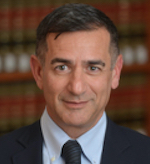
Senior living communities and agencies must be made more aware of the needs and issues facing lesbian, gay, bisexual and transgender older adults, according to a new report from the Williams Institute at the UCLA School of Law.
“The needs of older LGBT adults are quite different than those of the non-LGBT population,” said one of the report’s authors, Ilan H Meyer, Ph.D., who is the Williams Distinguished Senior Scholar of Public Policy at the institute. “LGBT older adults are sometimes apprehensive of how they’ll be treated by healthcare providers or in senior care facilities. We need to ensure that LGBT seniors will receive sensitive and effective care wherever they go for care.”
Soon Kyu Choi, M.P.P., MSc. a policy analyst at the Williams Institute, is the other author of the paper, “LGBT Aging: A Review of Research Findings, Needs, and Policy Implications.”
The report also asserted that anti-discrimination and housing policy laws based on sexual orientation or gender identity could better protect LGBT older adults who seek access to retirement homes, senior centers and healthcare.
Additionally, the authors stated, recognizing LGBT older adults under the Older Americans Act as a “greatest social need” group would open up funding avenues to prioritize services for this group. And culturally sensitive training for service providers could help improve the experience of LGBT older adults, they added.
The Williams Institute used the report as the basis for recommendations it made to the federal Administration for Community Living, which is considering new guidelines for targeting resources to older Americans who have the greatest social and economic need.
“It is estimated that 2.4 million LGBT older adults over 50 live in the United States,” Meyer said. “That number is expected to double by 2030.”
The states (including the nation’s capital) with the highest proportion of LGBT individuals of any age, according to the institute, include the District of Columbia, Vermont, Massachusetts, Oregon, Hawaii, California, New York, Nevada, Maine and Delaware.
The National Resource Center on LGBT Aging has posted information about competency training on its website.



